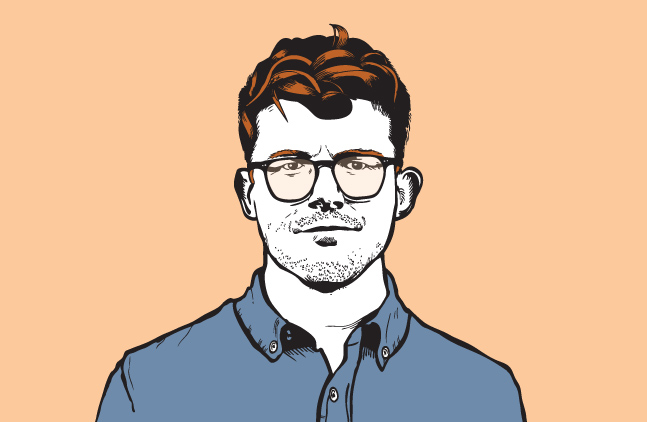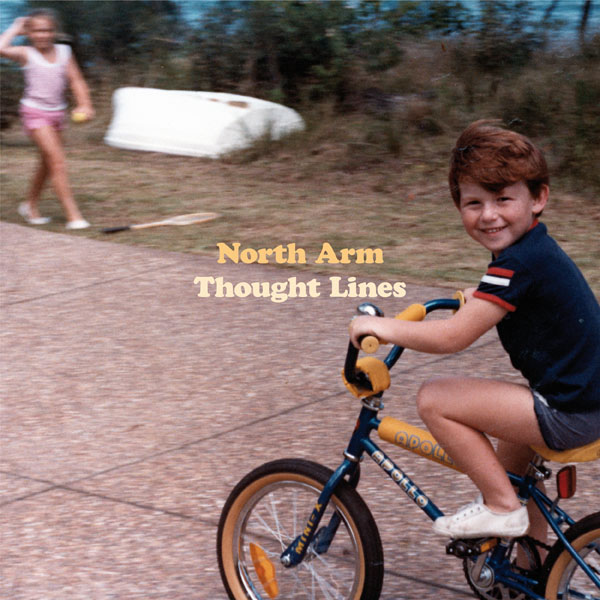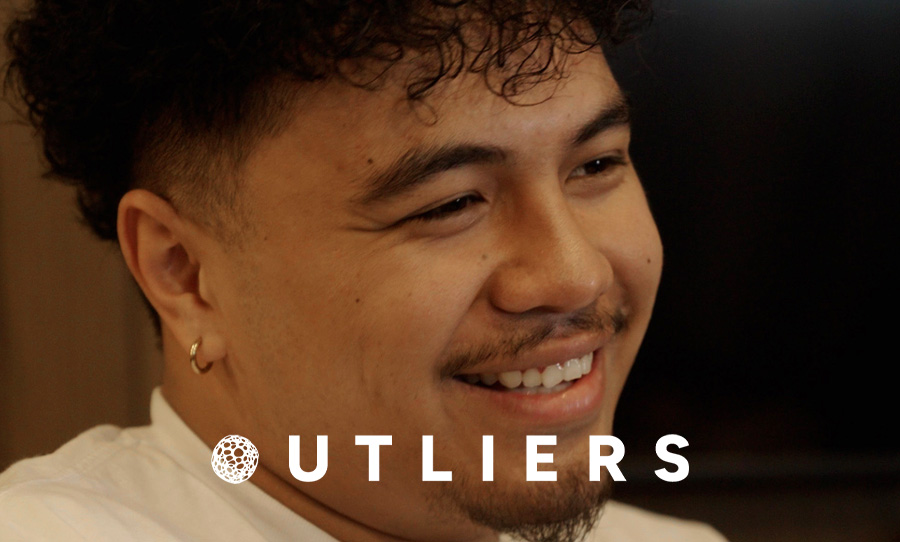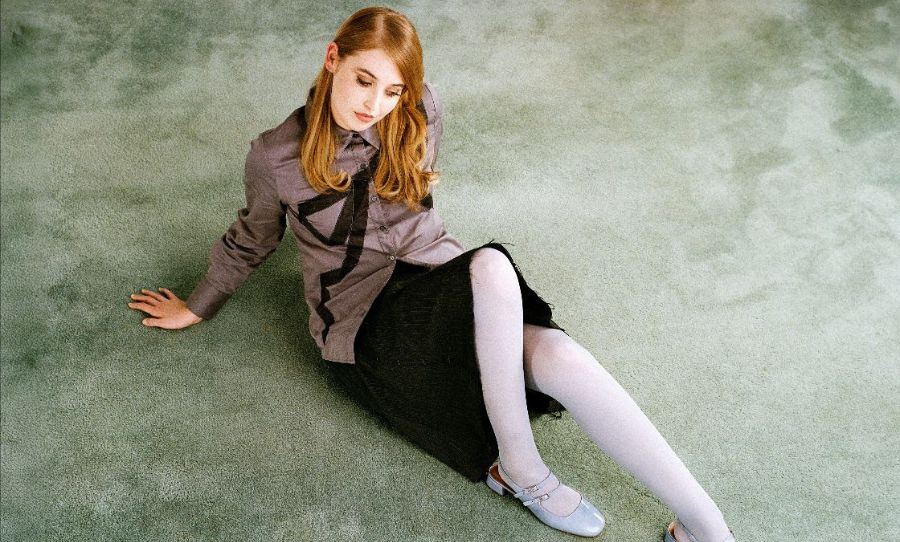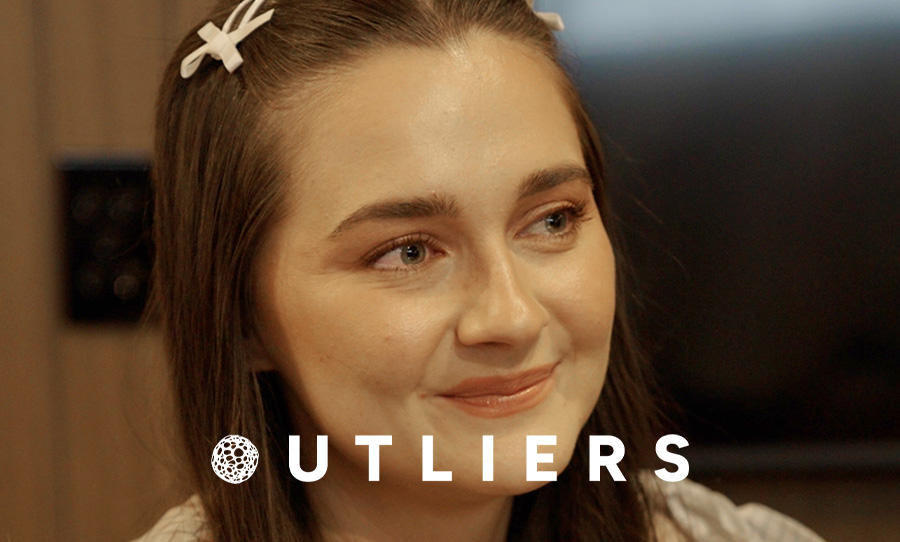Rod Smith is a busy fellow. Between running his law firm Evescourt Legal, playing in Firekites and planning the release of his debut solo offering as North Arm, he found time to speak with Happy, and to give us exclusive access to his track “A Universe”. It just so happens that he’s also a lovely fellow. We spoke about the ‘purge’ EP, accused him of being a ’77 baby and agreed that Happy (no pun intended) by Machine Translations was a pretty awesome record.
Interview by Radi Safi
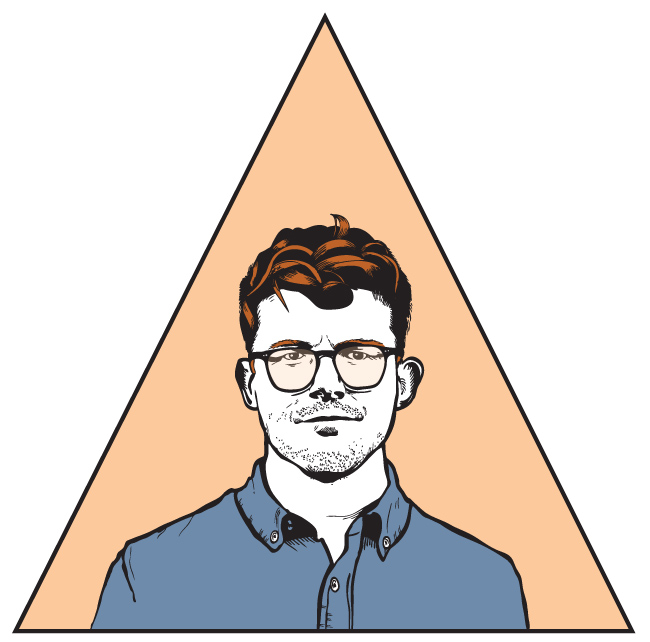
Happy: Where does the name North Arm come from?
North Arm: Uh yeah look North Arm comes from a place north of Sydney, called North Arm Cove. It’s in Port Stevens and that’s where my family bought a property by the estuary there, very cheaply in the late 70’s.
Happy: Cool.
North Arm: My dad’s a keen fisherman, and a very keen sailor, having been involved with the Sydney to Hobart yacht race for about three years from 1975-78 which is when I was born. There’s just a lot of affinity there with ocean sports or water sports kind of stemming from the family. We still have North Arm, we call it the bay, its North Arm cove. I devised the name about a year and a half ago. We’ve been working on the Firekites record which is just about finished, the second record and there was sort of a bunch of material that I had developed sort of, from about 2008 to 2012-2011 that was quite different in flavour to what we were working on with the second record and I don’t know, I just got a feeling that I sort of didn’t want them to sit on the hard drive too much longer.
Happy: When I first saw the EP cover for Thought Lines – I think it was an ad that Spunk ran in the background of a music blog – there was an immediate nostalgic feel and even before I read anything about you, I got the sense that you were a ‘77 baby.
North Arm: January ’78 man so not off by much.
Happy: So is that a picture of you? The bike looks so brand new I couldn’t place it. I was like this is either your kid and you’ve kind of treated the image so it’s got that 80’s feel or it’s just a photo out of the family album.
North Arm: Yeah it’s me, the BMX bandit. My dad took that photo.
Happy: What’s your take on the merits of the ‘purge’ EP? A term I’ve heard and maybe paraphrased but essentially it’s the kind of debut that’s designed to create a clean slate. More than a few artists I know have debuts that pull from material that’s been around for a few years.
North Arm: In a way it’s kind of a purge. There’s a record that two of those, in fact three of the songs from the EP actually came from in terms of the collection. It will be released later this year or early next year. I talked to Aaron from Spunk and he was like wow I really want to put that out now but in the background we had the Firekites record pretty much almost ready and placed to come out this year, so it was kind of like oh, how do we do both? So it was a bit of a decision to compromise but I’m happy that this EP has come out with the tracks that are on it.
Happy: Is the record finished?
North Arm: Yeah! The record is finished, its been mixed and mastered and the artwork is done and its ready to roll. I think it’s important to see how this EP goes, just to gauge how much interest there is in the music and whether or not it has a good chance of really striking. I love the songs I think they’re really great and I really want to take them forward. But you know, its sort of a little bit about resourcing and just making sure that things are kind of sequenced right you know?
Happy: That makes sense, and its one of the most difficult things about being in a band and about working with a label and trusting that all these things to come together. Timing is so important and you can really fuck things up if your timing is out.
North Arm: Yeah, yeah.
Happy: I think that as an artist you have to be spontaneous and you’ve got to go with the flow but I completely understand holding back and I kind of like the idea that you’re putting a taster out there. By the way I heard the single on FBi, which I thought was nice because I hadn’t heard it anywhere before that image caught my attention. I’m glad to see they’ve picked it up.
North Arm: I was really stoked that they did to be honest. Coming from Newcastle I really wish you could get it there on Newcastle Stereo.
Happy: I wanted to talk to you a bit about the single “Quietly Lightly”. I’m a big believer in syllables and the feeling that you’re left with as oppose to necessarily being able to understand all the words in a song. So I didn’t make a huge effort to understand everything but I’m certainly left with feelings of reflection and nostalgia not unlike your cover art. There was this feeling that you were talking about a younger self, and decision making as a younger self.
North Arm: I’d like to keep its true meaning somewhat oblique. Because I’m a ’77 boy [laughs] I really came on to music at around the age of 11-16. I started playing the guitar when I was 11 and I was heading up my first band at the age of 16 and there were a few things about my song writing and lyric writing process which I inherited. The first time I heard Nirvana it was almost as if someone had let off a firecracker in the room or in my brain and I decided that all I wanted to do with the rest of my life was be a musician, because I was just that excited by the intention and the sentiment of what I was hearing, and Cobain’s lyrics, were always really oblique but you could tell that it was just sung with intensity, and intention.
Happy: The intent is always there; regardless of if you can decipher the lyric itself.
North Arm: That’s right, and I never knew the lyrics because they never printed the lyric sheet but I didn’t care you know, it was just that feeling of excitement… that sort of sensory arousal when you’re hearing it and then what its kind of conjuring for you. And, in that way the song becomes personal to you, and I have a personal connection with artists that I love like Thom York, or Kurt Cobain or John Lennon, in ways because I’ve personalised their songs, and I really read into them my own experience and that is part of what makes music so beautiful, personal and potentially viral.
Happy: You mention viral which is all about striking a chord with society at a point in time. There are hundreds of great songs that only a few people know simply because they were released at the ‘wrong’ time. Of course there are other factors but let’s ignore those for the sake of this point we’re making.
North Arm: Yeah, that’s very true and I guess the thing about it for me is that music resonates with people. There’s always this subconscious feeling about music. I think that songs that really translate have a way of reaching into people’s experiences and kind of grabbing hold of their subconscious senses. Therefore, this kind of comes to a lyric writing process and that is essentially just working on the song, working on the song, working on the song, and not writing heaps of lyrics down but allowing the kind of feeling of the song to start informing you, the kind of story just starts to develop and then what happens is the lyric writing happens really quickly, on the fly, as I’m sort of working things through.
Happy: Will you be publishing a lyric sheet?
North Arm: Yes, yes I am actually! And that’s a conscious decision, because I think at the end of the day people do want to know what the lyrics are, but at the end of the day what I want is for them to interpret it for themselves and then discover a meaning that may accord with their initial impression by reading the lyric sheet.
Happy: Nice. Have you seen the Pitchfork documentary on Belle & Sebastian’s “If you’re Feeling Sinister”?
North Arm: No I haven’t!
Happy: What I loved about it was Stuart Murdoch is quite an introverted fellow, and he claims more than once throughout this interview that the songs aren’t about him, they’re just about these imaginary people and imaginary scenarios. And whenever they would cut to one of the band members they’d say the opposite. That he was writing about the shit he was going through. And so it’s a really funny notion because he’s lying and he isn’t at the same time, and that whole notion that art should be interpreted by the viewer or the listener is really important. He wants the listener to make up their own mind is what I was left with.
North Arm: Yeah I think it’s crucial to actually let people in, to the theatre, to what you’re saying and allow them to connect with it on their own terms.
Happy: Okay, so we have an EP here, which I really enjoyed by the way, which is a collection of tracks from between 2008 and 2013. But the first thing I thought was fuck, that’s five years and before I realised you had Greg on board for the mix, I wanted to know how you got the tracks to all glue so well. So, why don’t you talk to me a bit about getting J Walker on board, and the actual production process?
North Arm: Yeah man well you’re hearing sometimes first takes, in the guitar, “Quietly Lightly” is a really good example of that, that track is almost like three years old. With Greg, with Firekites he was a big fan he is a big fan of kites and we went on tour with Machine Translation a few times, just part of Spunk, kind of a showcase line-up, and I’m a massive Machine Translation fan.
Happy: Same here.
North Arm: Oh particularly of the Bad Shapes, Happy era, which I don’t like to emphasise too much with Greg because you know, he’s obviously written a lot more after that and lot more before that but I guess that’s where I really came on to Greg’s work and really connected with it.
Happy: How cool is it to discover an Aussie doing that sort of stuff right?
North Arm: Oh man, it just blew my brains off! I was in Surry Hills at the time and when I heard Happy I was like this is one of the best things I’ve ever heard and it remains so in relation to a few tracks in particular and the cohesion and general atmosphere of that record.
Happy: Totally.
North Arm: So Greg got in contact with us, essentially it’s something he rarely does. I felt it really lent itself to the sensibilities of Greg, and so I sent it down to him and the reason I sent it down to him, I was sending it down to a few people but the reason I sent it down to him, I was actually having a few beers with Aiden, Aiden Roberts from The Maple Trail, about a year ago and I showed him the demos and he’s like “dude you’ve got to send these down to Greg” and I was like fuck yeah I have to because I’ve got his email sitting in my email list, and I happened to have his number in my phone and I gave him a call I was like dude do you want to hear a few songs? And he’s like “Hell yeah!” so I sent them down and he just came back to me about an hour later and just went “Yeah lets do this thing” and I was like alright, bam. It was one of the most gratifying experiences that I’ve ever had where someone really connects with the material and such that they want to spend quite a bit of time working on it.
Happy: Nice. I did some research on The General Store which is credited as the studio you worked in. Is that a home studio for Greg? He needs a web site because I couldn’t find any info unless I was looking in the wrong places. [Greg if we got this wrong send us a link man].
North Arm: Yeah that’s Greg’s home studio, in South Gippsland, in rural Victoria. So we had a couple of sessions down there, and a bit of to and fro in between settling the mixes and stuff but I spent in total almost a week with him and we spent a good couple of months getting the tracks together…
Happy: I’m going to interrupt you there. I love that you said a couple of months because I think this is something that should be talked about more often. The reality of a good sounding record and the reality of time frames in recording and mixing and mastering and getting it right.
North Arm: Yeah. I mean there’s a time when it gets a bit ridiculous you know what I mean, like you don’t want to be pulling a Kevin Shields on this thing where it takes ages and there’s just so much build up over a record and its like six years on. But it does depend on what sound you want to achieve. For me, it was kind of more situational, the tracks, the gestation period of the writing of the songs was kind of long but the momentum really built quite quickly after I started to pull them into the new Pro Tools rig and really pull out a few elements, really whacking out some Tambo, some additional drums, some additional this, additional that, but certainly when you get down to, when all of the channels are in, and it gets down to actually, really trying to get the arrangements right, that was one thing that I had to focus on a bit really chopping and changing not in any big way, but a few songs needed a little bit of a nip and tuck and you know, just for some certain things and elements in the song to happen earlier.
Happy: It’s great that you had that foresight, it doesn’t always happen that way.
North Arm: Yeah well that’s true. I didn’t want the songs to overstay their welcome, I really wanted to make a kind of statement which kind of starts, has an end and a beginning and it has something to say and it says it, because I love the brevity of punk and 90s grunge, and the brevity of early Beatles you know? I wanted to skirt the middle but I really wanted to keep the tracks contained and I wanted the spirit of the songs to be strong. Oh and in relation to the production just speaking of Greg for a while, the reason I characterised it as a bit of a collaboration was because, obviously when working with producers there’s an element of collaboration involved.
Happy: Always, of course. Fifth member and all that.
North Arm: Yeah and Greg actually played on the record and is credited on the record and that is just a huge thing for me.
Happy: I think all great producers get hands on. They all have a number of magic tricks up their sleeves, that come out in the studio whether or not that’s ever credited. I think it goes hand in hand with working with somebody, in their space as well.
North Arm: Totally. Greg played drums on one of the tracks and get very hands on which was amazing of course.
Happy: Nice. Okay so one final question but before I go there just wanted to say I really loved your stuff I think it’s awesome that you’re doing it and you should continue to do it. What struck me as hilarious, and amazing and wonderful was your email signature. I think you know what I mean. It’s a bit like fuck everyone; here is everything I do in one place, take it or leave it, I’m a lawyer you can hire me, I’m signed with Spunk, and here is my Bandcamp link if you want to have a listen.
North Arm: Well yeah, look that’s a pretty long story. As I said I was in bands when I was sixteen, I went away to Uni, I studied a law degree, I thought that that was it for my music stuff I kind of thought it was done and dusted. I worked in Sydney for six years, well for five years and then I was really kind of depressed I just kind of hated life, and wasn’t enjoying anything. So I went back up to Newcastle, and kind of did music as myself and with Tim and focused more on the music with Tim because it was really, a great energy and it had a true momentum, which it still does. You know, I guess in the mean time I still had to do a job because stuff had to be paid for and things had to be worked out and then I was working for a law firm and the GFC hit and because of a beer industry client which was my old employer was my main client, I survived the GFC and then, all of a sudden there was a change. Yeah, so then that was kind of the main stay of my practise. The GFC eventually claimed me, I was made redundant and rather than becoming an employee of somebody else because I knew that I wasn’t employable because of what I wanted to do with music and I only really survived in that law firm because my old employer just used to be a radio DJ on 2SER, and was such a huge music fan and was a huge fan of Wayne Connolly who used to head up the welcome mat, and who produced the first Firekites record. So I was like far out what am I going to do? So I just started up my own law firm which I’ve been operating in the front room of my house for a couple of years.
Happy: Does it pay the bills?
North Arm: Yeah it does actually. It’s flexible you know, I couldn’t do it without my wife. [Happy hugs to wives, husbands and partners]. For me, it’s like going to King Willy’s sound and seeing Willy Bowden work in the backroom of his house, its kind of cool, its in this little out building, it’s a really amazing set up and the fact that The General Store is like an out building in J Walker’s place. But, with Greg, if he’s not doing soundtracks for the ABC or something like that he’s always working on other stuff and he’s working with Machine Translation and if he’s not doing that he’s producing someone’s record. I think you’ve got to diversify and have it all there. Yeah look you know, I always look up to lawyers like Brett Oaten.
Happy: Brett and I had a big fight once a long time ago.
North Arm: Yeah look, well I’ve had a fight with Brett as well on a few occasions, particularly in relation to a matter that I was handling once. [DELETE DELETE DELETE]. I guess it’s almost like yourself you know you’re involved in music, media, you’ve probably been involved with music yourself, written songs. You don’t want to say “YOLO” but it’s a bit like that, you’ve just got to be the person you want and it shouldn’t have to be any particular mould.
Happy: Agreed. So Happy right now is doing stuff like this, reviewing great new Aussie music and building the brand because I really think that there is space for an honest Australian owned and Australian focused festival. Instead of trying to go all out and do it once as a massive thing we’re kind of building the brand slowly through the doing things like this with artists like North Arm.
North Arm: That’s awesome.
Happy: We’re also planning some shows and North Arm is definitely on our wish list so once we’re booking shows we’ll be sure to send you an invitation to play.
North Arm: That’ll be great and look thanks heaps for getting in contact. I think that there is room for a music festival which operates like the music festivals that I remember you know. And I’m talking about ’91, ’92 Big Day Out kind of vibe, really cool, I’m not talking about Peats Ridge. I’m talking more about the music. Sure you’ve got to be corporate to some extent but the full on corporatisation of the music industry is something I’ve observed over a number of years both as them being my clients and them being my employer. And, it’s like far out, the difference is just so obvious now and I don’t know where it’s going to go.
Happy: I know, it’s pretty crazy, but I think that as long as people are thinking differently, charging forward with new ideas, and things are falling over because things do fall over and make room for new things then there’s always progress.
North Arm: And that’s actually happening in the UK, there’s actually some instances of some of these I suppose profiteers getting into the music industry kind of space and just not reading the tea leaves and coming up stuck.
Happy: Yeah. Well anyway look Rodd awesome to chat with you this morning so thanks for taking the time. Can’t wait to hear the whole album.
North Arm: Thanks heaps.
